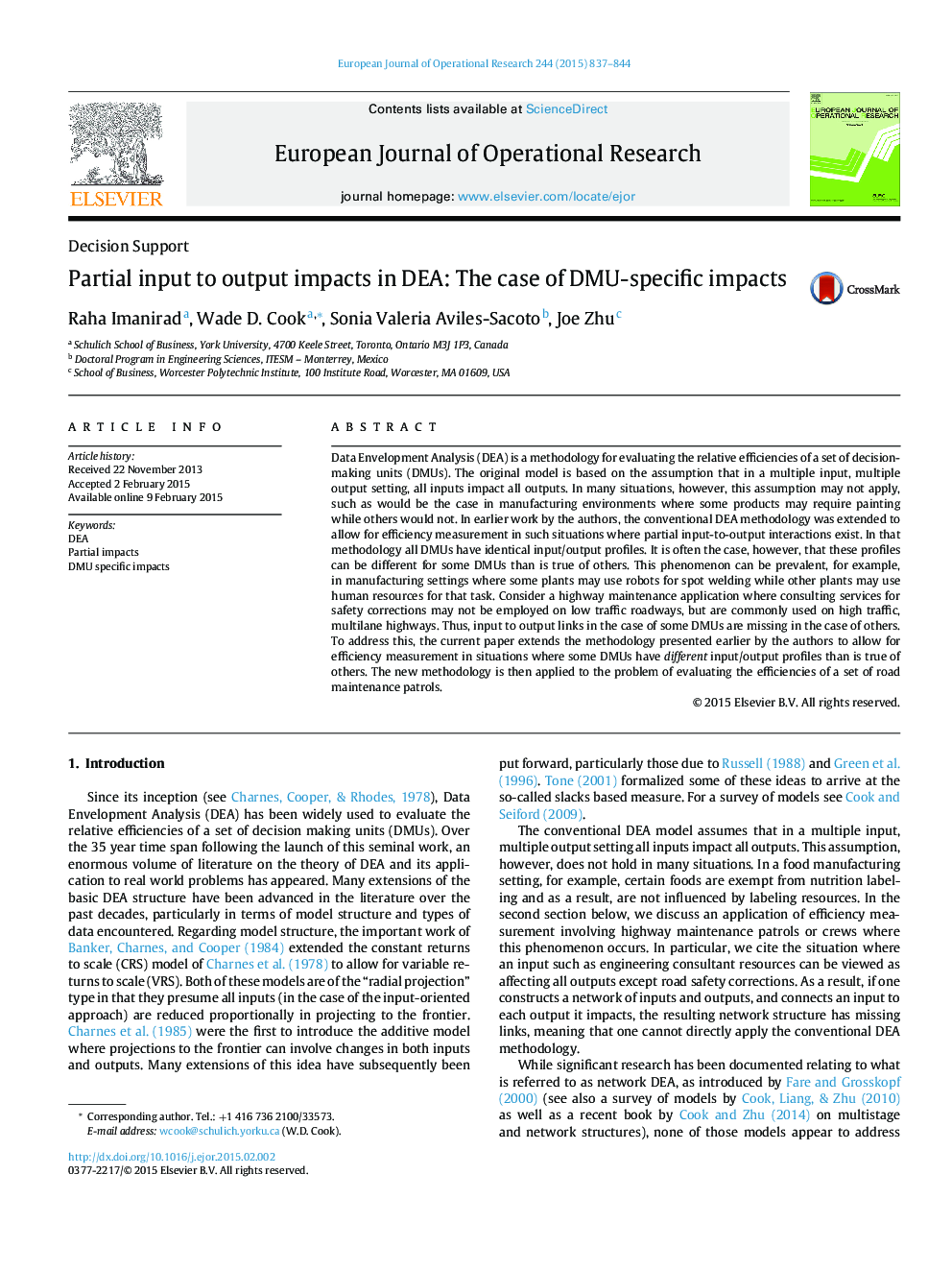| Article ID | Journal | Published Year | Pages | File Type |
|---|---|---|---|---|
| 479583 | European Journal of Operational Research | 2015 | 8 Pages |
•Develops model for measuring efficiency of processes where not all inputs affect all outputs.•Input to output impacts may be different for some business units than for others.•Applies new efficiency measurement model to a set of highway maintenance crews.
Data Envelopment Analysis (DEA) is a methodology for evaluating the relative efficiencies of a set of decision-making units (DMUs). The original model is based on the assumption that in a multiple input, multiple output setting, all inputs impact all outputs. In many situations, however, this assumption may not apply, such as would be the case in manufacturing environments where some products may require painting while others would not. In earlier work by the authors, the conventional DEA methodology was extended to allow for efficiency measurement in such situations where partial input-to-output interactions exist. In that methodology all DMUs have identical input/output profiles. It is often the case, however, that these profiles can be different for some DMUs than is true of others. This phenomenon can be prevalent, for example, in manufacturing settings where some plants may use robots for spot welding while other plants may use human resources for that task. Consider a highway maintenance application where consulting services for safety corrections may not be employed on low traffic roadways, but are commonly used on high traffic, multilane highways. Thus, input to output links in the case of some DMUs are missing in the case of others. To address this, the current paper extends the methodology presented earlier by the authors to allow for efficiency measurement in situations where some DMUs have different input/output profiles than is true of others. The new methodology is then applied to the problem of evaluating the efficiencies of a set of road maintenance patrols.
